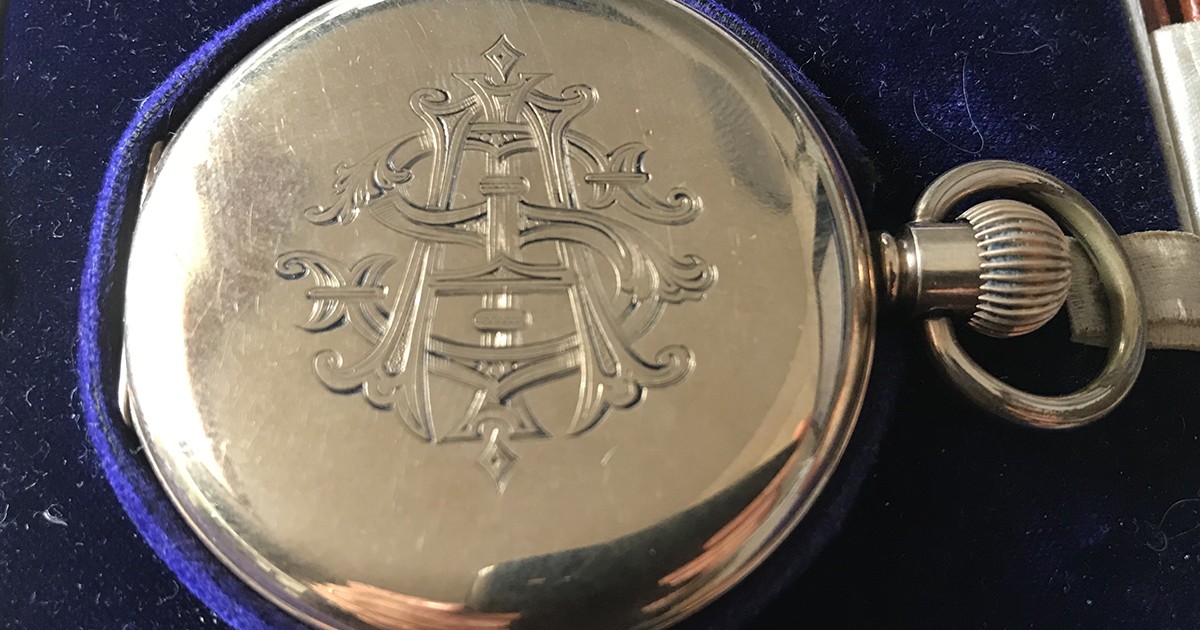
By Craig Smith
“Tin,” he said, pointing at me with one bony finger.
“Eh? Tin of juice? Do you mean a can? Do you want a can of Coke?”
“Tin,” he said again, fainter this time as his eyes closed and his head settled back into the pillow.
I straightened his gown, smoothing the words For Hospital Use Only over his exposed shoulder, and stood to get some air at the window. The blossom on the tree outside was in full bloom now. It’d been bare and brittle with frost when we were told he only had hours to live.
Two nurses replenished the morphine in the locked plastic box at his back. The opiate trickle dulled the pain of dying and kept the darkness away, but it also made him more distant, more confused. The tin thing could have been a hallucination.
The next day, we gathered around his bed again to help the minutes tick away. After a few hours he opened his eyes and took a few sharp breaths.
“Son,” he said, struggling. “My gold watch. Engraved. Albert Isles Smith. You’re to have it. And give it to the boy when the time comes.”
His grandfather’s watch. A pocket watch from the 1920s – gold-plated and engraved with an ornate AIS, the initials they’d shared. His grandfather’s, his father’s, his own, soon to be mine, and eventually my son’s.
“Thanks, Dad,” I managed, as the decades fell away. This was the first time he’d acknowledged that his time was nearly up, that he was ready to “fall off the perch” as he’d have put it.
Later that evening, as he slept, we realised we’d no idea where the watch was. Years of accumulated memories were piled high around my parents’ house. The house I’d grown up in. The house that now seemed so hard to visit. The sight of the Reserved for Grandad cushion on his empty chair was like a punch to the stomach.
“It’ll show up, Mum,” I said. “Don’t worry.”
A week later, fifteen minutes into his 84th birthday, my dad breathed his last. We were with him when he left us, our wee family of four together for the last time. My mum and sister read out their birthday cards for him at midnight through the tears. I put some of his favourite whisky on a sponge and dabbed his lips. During one of the horrible pauses between his laboured breaths, I noticed the pulse on his neck had stopped, and he was gone.
For weeks we’d said that he was hanging on for his birthday. He’d do anything for a dram.
We found the watch the next day. I tried winding it but the mechanism appeared to have seized so I wound the hands back to 12:15 – a reminder of the time he’d left us.
And it started ticking.
Pretty incredible for a watch that had spent decades tucked away under a chest of drawers, in an old sailor’s ditty box, made of tin.